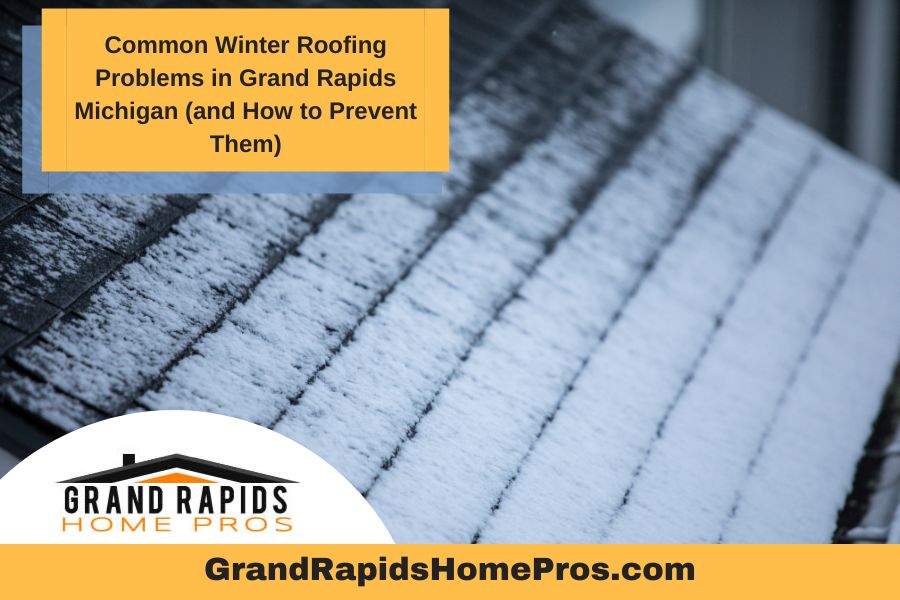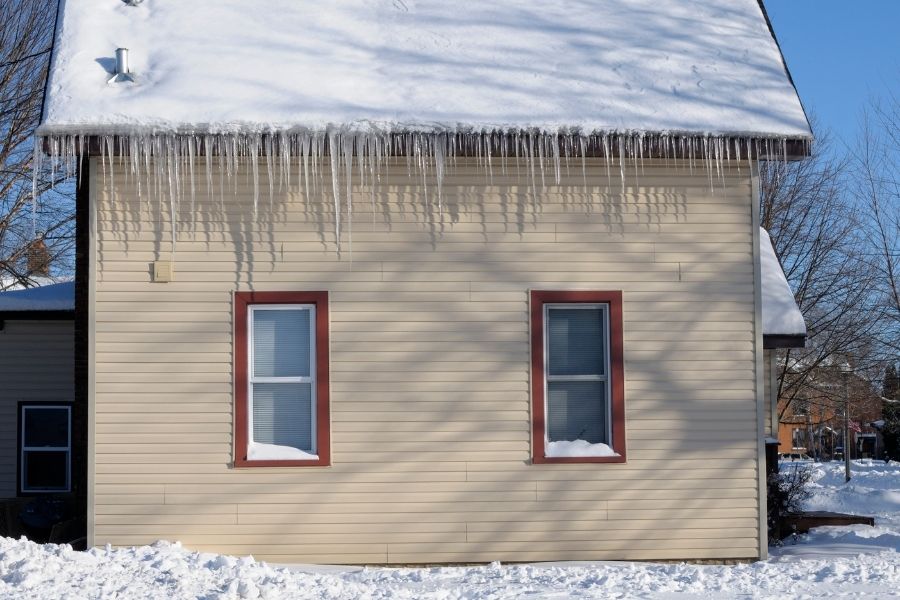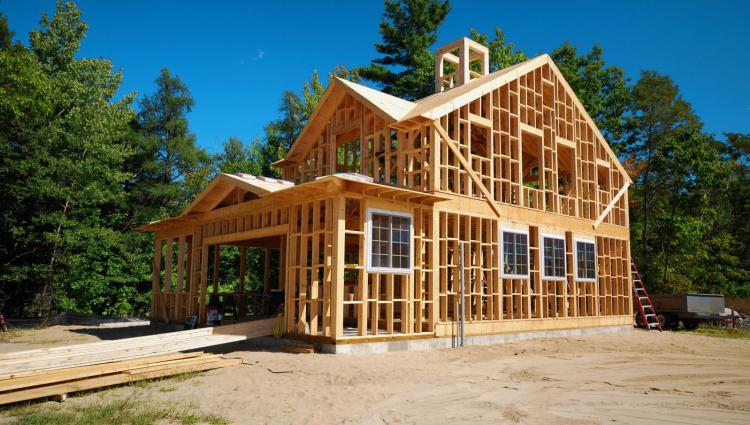
It’s that time of year again—the weather is getting colder and the snow will soon start to fall and hang around for few months. That means it’s time to start thinking about winterizing your home, and that includes your roofing in Grand Rapids Michigan. In this blog post, we’ll discuss some of the most common winter roofing problems and how you can prevent them.
Common Winter Roofing Problems in Grand Rapids Michigan (and How to Prevent Them)
The roof on your home is very important because when there is a problem it can allow water to leak inside your home and cause water damage to components in the attic. And if the roof leak gets bad enough you’ll also have water damage in livable areas of your home. Many times you’ll see evidence of this through brown stains on the ceilings and walls. In winter, a roof leak can be even more problematic because as snow and ice collect on the roof there is always a water source for the leak to draw from. This can lead to even more damage. Here are some common problems you may have with your roofing and more importantly, what you can do about them:

Ice dams that develop on edges of the roof
One of the most common winter roofing problems in Michigan is roof ice dams. Ice dams occur when melting snow that is on the roof starts to melt and then refreezes at the edge of your roof, forming a dam of ice that prevents water from draining properly. This can lead to roof leaks and other damage especially on exterior walls. To prevent ice dams, make sure your home is well-insulated and ventilated so that heat doesn’t escape through the attic. You should also clear any debris from your gutters so that they’re free-flowing. Cleaning your gutters in the fall is a great way to help prevent roof ice dams from forming over the winter.
Snow build-up on the roof
Another problem that can occur in winter is snow build-up on your roof. While a little bit of snow is no cause for concern, too much snow can put unnecessary strain on your roof, causing it to sag because of the weight and possibly collapse under the additional weight. To prevent this from happening, you should regularly shovel snow off your roof (if you can reach it safely) or hire a professional to do it for you. There are snow shoveling rakes that are sold in home improvement stores and on Amazon which let you rake the snow off your roof which can be ideal for many single level homes to remove the snow from the roof.

Increased energy bills
All that heat escaping from your home can also lead to increased energy bills in the winter months. To keep energy costs down, make sure your insulation is up to par and that there are no gaps or holes in your home’s exterior through which heat can escape. You might also want to invest in a programmable thermostat so you can keep your home at a comfortable temperature without wasting energy when you’re not there.
If you have any concerns about the condition of your roof or you think you may have a problem, it’s always best to contact a professional roofing contractor to come and take a look. They’ll be able to assess the situation and give you the best course of action. And if you need any repairs or replacement, they can take care of that for you as well.
These are just a few of the most common winter roofing problems that you may experience in your Grand Rapids Michigan home—but they’re certainly not the only ones. With that being said, hopefully this information has given you a better idea of what to look out for and how you can prevent potential damage to your roof this winter. If you suspect there is a problem on your roof then be sure to contact Grand Rapids Home Pros today to get a roof inspection done on your home. We’ll repair any problems and make sure your roof is ready for the coming winter.







